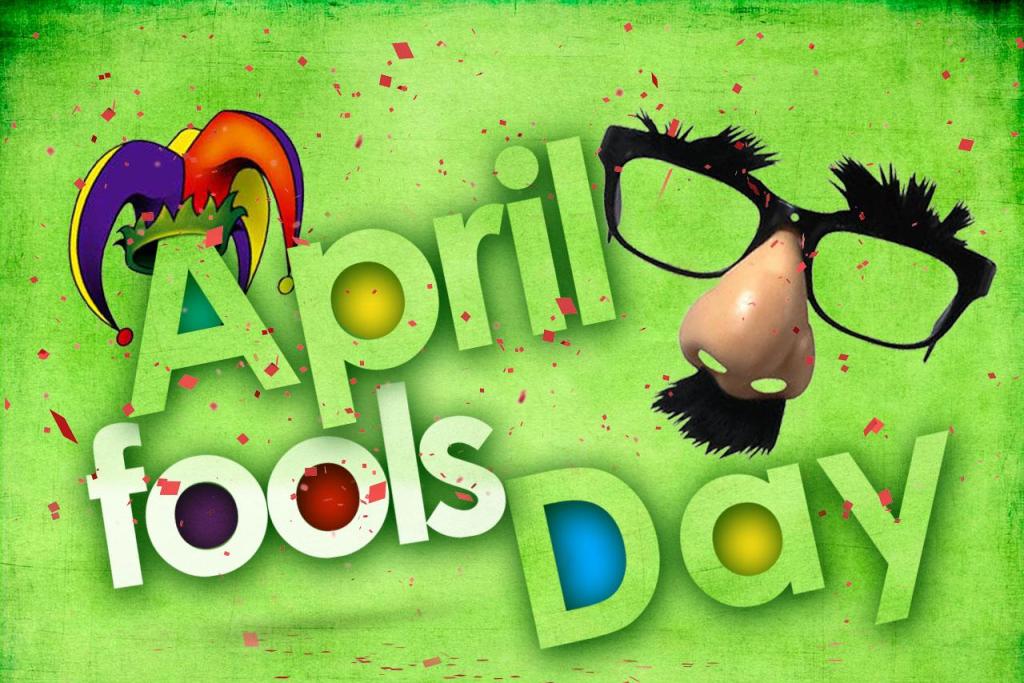
techuloid.com image
By Casey Bukro
Ethics AdviceLine for Journalists
Days are officially recognized for every occasion, so why not for fools or foolishness?
That seems reason enough for April Fools’ Day, usually April 1 each year.
Historians say it’s been celebrated for several centuries by different cultures, though its exact origins are a mystery. One theory is that it dates to 1582, when France switched from the Julian calendar to the Gregorian calendar. People who were slow to recognize the calendar changes by the last week of March through April 1 became the butt of jokes and hoaxes and were called “April Fools.”
A tradition lingers
That tradition continued into modern times, sometimes with yelling “April Fool” at the victim of the jokes and hoaxes. People seem to enjoy making others look foolish.
Media have done their share of keeping April Fool traditions alive by playing pranks on readers and viewers.
In 1957, the British Broadcasting Corp. reported that Swiss farmers were having a record spaghetti crop and showed footage of people harvesting noodles from trees. That was clearly a joke.
But some hoaxes were frightening.
A Halloween episode
“The War of the Worlds” was a 1938 Halloween radio episode by The Mercury Theater on the Air directed and narrated by Orson Welles as an adaptation of the H.G. Wells novel of the same name. The episode is famous for inciting panic among listeners by reporting in breaking news style that Martians were invading New Jersey with towering “war machines.”
Welles, 23-years-old at the time, ended the 30-minute broadcast by saying it was a spoof, comparing the show to “dressing up in a sheet and jumping out of a bush and saying ‘boo!'” The show caused widespread outrage. Welles said he got the idea for the program from the BBC, which broadcast a fictitious story about Communists seizing London. A bigger story, Welles thought, would be aliens from outer space.
It was inevitable that the Ethics AdviceLine for Journalists would be called and asked if this kind of prank journalism is ethical.
168-mile fast ball
The April 1, 1985 edition of Sports Illustrated magazine carried a story by the late George Plimpton saying that a New York Mets rookie pitcher named Siddhartha (Sidd) Finch could throw a baseball 168 miles an hour.
It was a hoax, and Sports Illustrated later admitted that the story was an April Fools’ joke. Some called it the greatest April Fools’ joke in sports.
Plimpton was famous for taking turns as a Yankee baseball pitcher, a Baltimore Colts football player and boxing Archie Moore — then writing about the experience from an amateur’s viewpoint. It was an example of what today might be described as participatory journalism. Plimpton did a lot of that.
A sports publication journalist called the Ethics AdviceLine for Journalists, saying he had an idea for an April Fools’ Day story in the Plimpton tradition, but wanted to know if that would be ethical.
The AdviceLine adviser remembered the story about fireball pitcher Sidd Finch, and was skeptical at the time he saw it in 1985.
Plimpton’s reputation
“This was due to the very well-known reputation of Plimpton as a writer who went in for bizarre experiences and writing having to do with sports,” said the adviser, who also recalled that Plimpton and Sports Illustrated at the time “came in for little serious criticism once the hoax was divulged.”
Most readers thought it was “fun” in keeping with the kind of work Plimpton did during his career. But the adviser suggested that, just like fastball pitchers, not all writers can deliver a change-up:
“Without this background and past reputation, a true journalist risks his/her reputation and the reputation of his/her news media using this device. A direct answer is, the creation or promulgation of a known false story is unethical, Plimpton notwithstanding.”
And, the Society of Professional Journalists code of ethics urges journalists to “seek truth and report it.” The public expects media to present facts, not hoaxes, unless they appear in the entertainment or comics sections. That would give fair warning of foolishness.
**************************************************************************
The Ethics AdviceLine for Journalists was founded in 2001 by the Chicago Headline Club (Chicago Professional Chapter of the Society of Professional Journalists) and Loyola University Chicago Center for Ethics and Social Justice. It partnered with the Medill School of Journalism at Northwestern University in 2013. It is a free service.
Professional Journalists are invited to contact the Ethics AdviceLine for Journalists for guidance on ethics. Call 866-DILEMMA or ethicsadvicelineforjournalists.org.